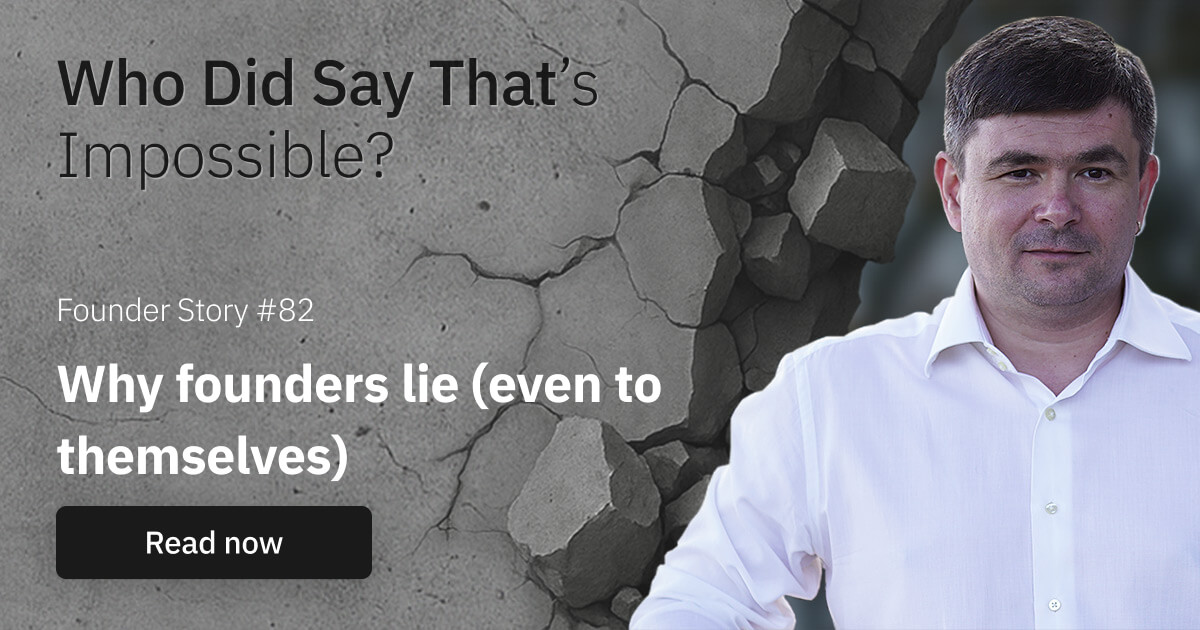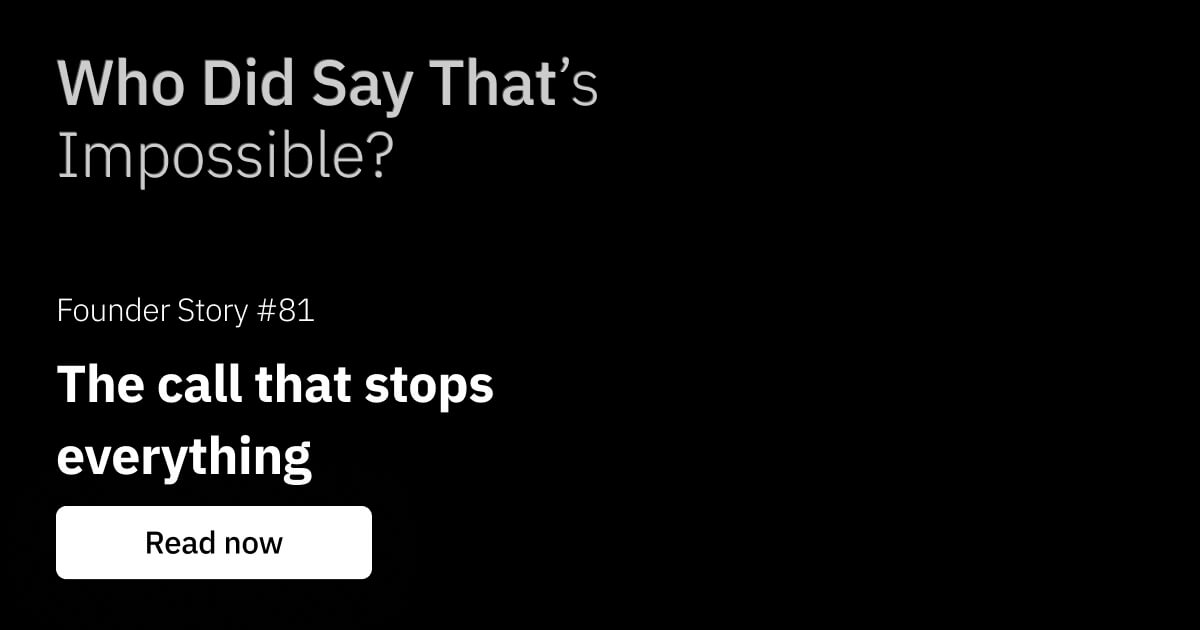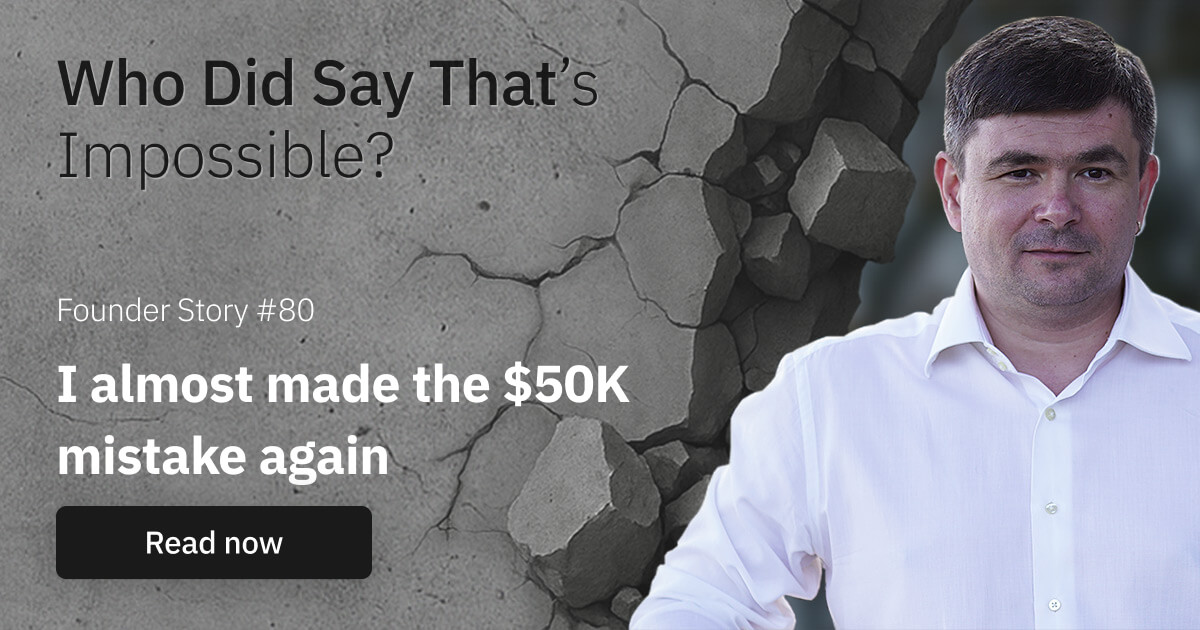Small secret, big impact.
A minute of “Strength in Unity”.
The problem with all of us is that, even knowing the value of something, we often do the exact opposite.
Take healthy living as an example.
Everyone agrees it’s important.
Vital, even—for yourself, first and foremost.
And everyone says the right things.
But in reality?
Let’s not even mention the gym—don’t remind me how often I show up there.
What about healthy eating?
Yeah, right.
Which is why fast food is still thriving, along with rising global obesity rates.
Why is that?
Blame your brain.
Its top priority isn’t making you rich or successful—it’s conserving energy.
A true economist.
And let’s face it, a good dose of laziness.
And this extends beyond personal life to business development.
Back to business processes, their implementation, and the struggles that come with them.
What’s interesting?
Whenever you try to introduce something new—business processes included—your brain’s energy-saving mode kicks in.
Change demands extra effort, and even if no one likes the old ways, they’ll dislike the new ways even more.
Even simple things like checklists and guidelines often meet resistance.Teams don’t grasp their importance, start treating them as formalities, and eventually ignore them altogether.
This happens regardless of experience or commitment.
I’ve seen it firsthand.
Why does this happen?
People often justify this resistance with claims of complexity, inconvenience, or wasted time.
Experienced employees are especially prickly—they see it as questioning their competence or mistrusting them.
Even when they understand the benefits, people resist change, especially if they didn’t initiate it.
Their familiar routine gets disrupted.
And that triggers negativity.
For solopreneurs, it’s easier.
They create processes for themselves, to avoid forgetting things amidst the chaos.
As the initiator, they overcome their own internal resistance faster.
Over time, it becomes a habit, like grocery shopping.
When there’s a team, it’s harder.
Any activity involving people—especially those “dependent” on each other to some degree (employees on employers and vice versa)—always brings complications.
That’s why AI, automation, and robotics are being adopted so quickly.
Not only do they save time almost instantly, but they also remove interpersonal conflicts: “Not my job,” “I don’t feel like it,” etc.
This is one of the main reasons I chose to return to a small team and solopreneurship.
A small team is easier to align as a group of like-minded individuals.
Of course, there are nuances—it depends on the entrepreneur’s leadership skills and the rules they set.
It’s crucial to explain to employees that checklists and guidelines aren’t introduced because they’re failing.
Explain the specific goals and expected outcomes.
Such open discussions reassure them and show this isn’t about adding unnecessary bureaucracy.
There’s no shame in using checklists and guidelines.
No one is doubting their professionalism.
We’re all human:
- Someone’s out sick, and a colleague steps in.
- Someone had a fight at home and came to work fuming.
- Someone stayed out all night celebrating at a wedding.
And so on.
Checklists, guidelines, and processes exist to help.
So nothing gets forgotten, and even if someone’s clueless, they can quickly catch up.
No need to explain which folder something’s in or why the office supply checklist is titled “New Document 1.”
Once the implementation phase is over, the next step is optimization.
Cutting out anything unnecessary or obstructive.
Here, it’s crucial to analyze feedback not just from your team, but also from clients and contractors.
Only after processes are tested and optimized can you move on to automation.
Today, automating business processes is the key to scaling a business.
But a huge mistake is jumping into automation before formalizing and refining processes.
Automation is like a magnifying glass.
It will scale not only efficiency but also problems and errors in your processes.
Moreover, automation is most effective for routine, rarely changing tasks that are time-consuming.
More on that next time.
Disclaimer.
Every business has its nuances, and every founder has their unique context and resources. Whether or not my advice applies depends on your situation, experience, and needs. But one thing is universal—use your brain.
Think about how to apply the advice in your context before acting.
Your way.
- Eugene
Join the “most offbeat” Businessletter on entrepreneurship.

Hi, I’m Eugene.
20 years later — 80 people, 3 continents, 7-figure revenue.
But for many years, I was the bottleneck in my own business.
Now I help founders escape the same trap. Through systems that actually work, not theory.
I write weekly: operational war stories, decision systems, and lessons learned the hard way.
For founders who want to build without burning out.
More Stories
Founder Stories

Why founders lie (even to themselves)
Or minute of freedom that comes after you exit

The call that stops everything
Or minute of realizing your business isn't ready for this


